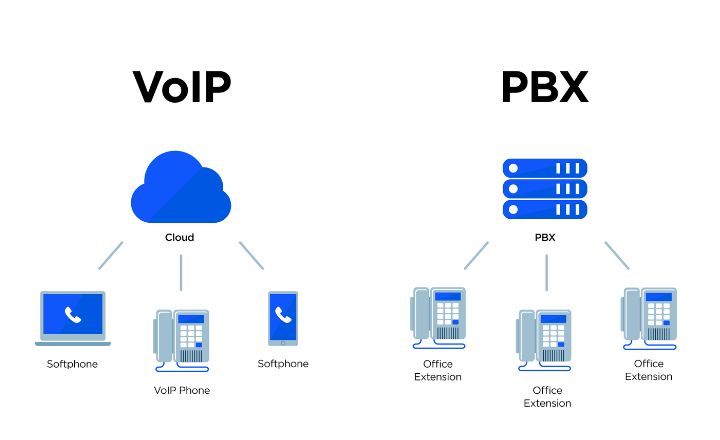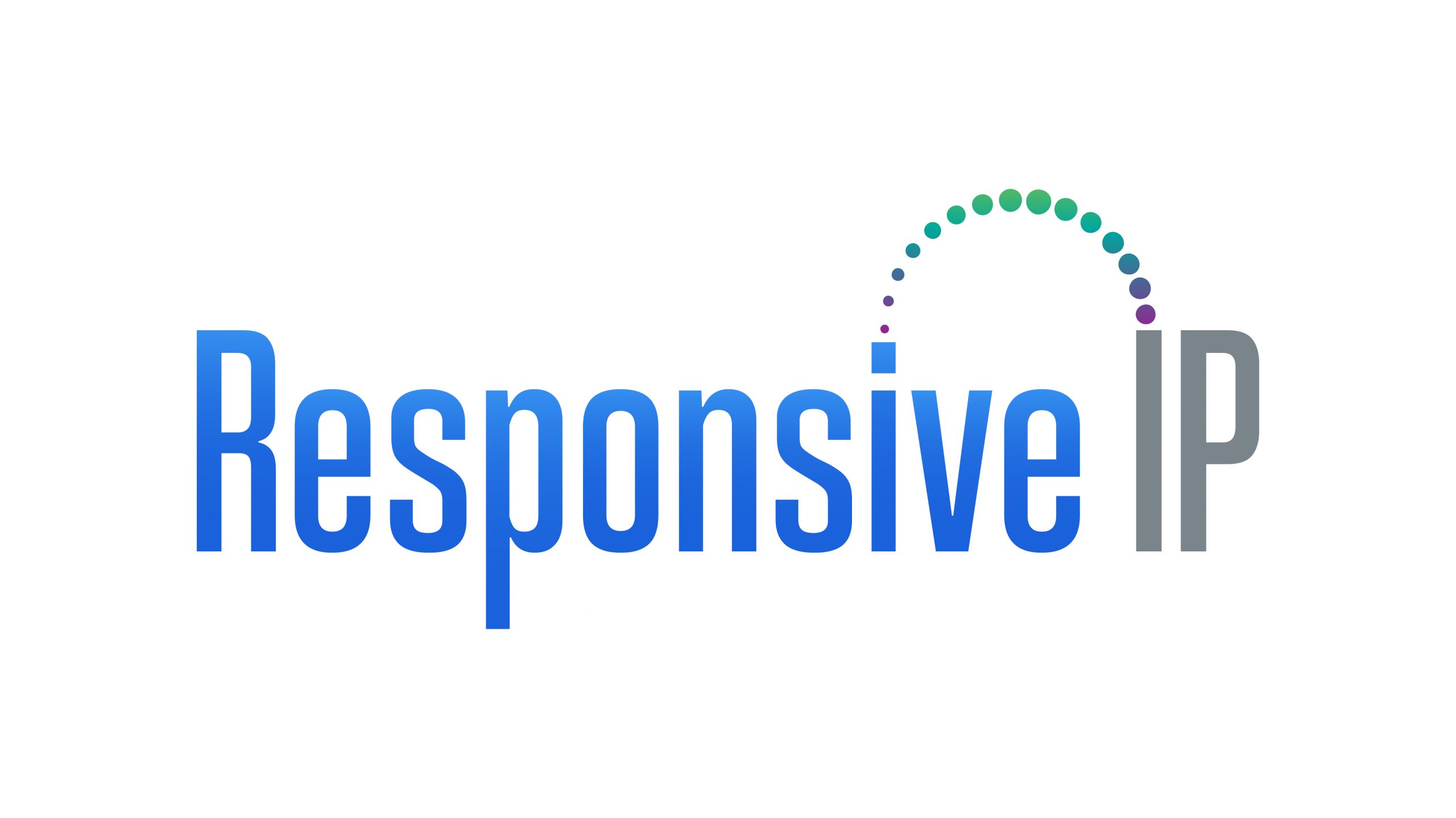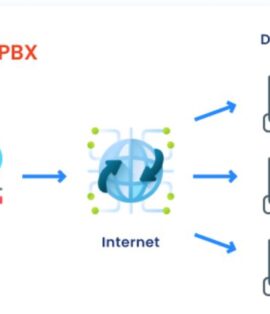
IP Telephone System vs Traditional PBX: Which Is Best for Your Business
Communication in businesses has progressed quickly with time, from cumbersome hardware-based systems to agile cloud-powered networks. IP telephone system vs traditional PBX one of the greatest controversies for contemporary organizations: which one offers superior value, performance, and scalability?
Whereas classic PBX systems have served well for decades, IP phone systems (VoIP) bring sophisticated features and internet-based flexibility to businesses today. This article discusses the contrast between the two, their advantages and disadvantages, and how to select the appropriate one for your business.
What Is a Traditional PBX System?
A conventional PBX is an on-site physical phone system connecting internal phones to external lines through the PSTN (Public Switched Telephone Network).
Traditional PBX systems usually employ analog or digital lines and are specified by dedicated hardware, cabling, and maintenance. They are recognized for reliability but are not as flexible as today’s business needs.
Also Check: Our Services
The key benefits of traditional PBX are:
- On-premise hardware installation
- Internal call handling and extensions
- Basic call transferring and voicemail options
- Needs a technician to do upgrades and maintenance
What Is an IP Telephone System?
An IP telephone system or a VoIP (Voice over Internet Protocol) system carries voice data over the internet in place of typical phone lines. This implies you can make calls from any internet-enabled device — ranging from office phones to laptops and smartphones.
Major characteristics of IP telephone systems are:
- Internet-based calling (VoIP)
- Cloud hosting choices (no hardware needed)
- Sophisticated features such as video conferencing, call recording, and CRM integration
- Simple scalability and remote access
With an IP system, companies can communicate easily between offices, cities, or even continents — all in one centralized solution.
Benefits of an IP Telephone System
1. Cost Effectiveness
One of the largest advantages of converting to an IP phone system is cost savings. Conventional PBX systems use costly hardware, installation, and upkeep. IP systems, on the other hand, are internet-based, drastically reducing long-distance call expenses and removing the necessity for in-house servers.
2. Scalability
New lines on a PBX system typically require purchasing additional hardware or licenses. VoIP, on the other hand, is as easy as adding new users to your plan — great for remote or growing teams.
3. Sophisticated Communication Features
- IP phone systems support features such as:
- Call forwarding and recording
- Video conferencing
- Auto-attendant (IVR)
- Call analytics and CRM integration
These features enhance team productivity and customer experience.
4. Remote Work Support
With hybrid work becoming the norm, IP telephone systems allow employees to make and receive business calls from anywhere — using laptops, smartphones, or softphone apps.
5. Easy Maintenance and Upgrades
Software-based systems can be updated remotely, meaning you’ll always have access to the latest features without downtime or technician visits.
Advantages of a Traditional PBX System
1. Reliable and Proven Technology
Legacy PBX systems have been existing for decades and are characterized by stable, dependable performance, particularly in areas with weak internet connectivity.
2. Security and Local Control
Because the hardware is in-house, organizations have complete control of system administration, making it an ideal choice for those with rigorous in-house security measures.
3. Call Quality Consistency
Unlike VoIP, PBX doesn’t depend on internet bandwidth or speed, providing consistent call quality regardless of the circumstances.
But these benefits are offset by trade-offs in cost, flexibility, and scalability.
Which One Do You Use?
IP telephone system vs traditional PBX: which one to choose depends on the size, needs, and budget of your business:
Use IP Telephone System if:
- Your company is spread out remotely or internationally
- You require low-cost, scalable communication
- You would like cloud-based systems with rich features
Use Traditional PBX if:
- Your company already has an installed PBX infrastructure and limited internet access
- You value on-premise control and stability
- You don’t require contemporary integrations or mobile support
The IP telephone system is the superior choice for most contemporary businesses — providing flexibility, cost-effectiveness, and forward-looking communication.
How Responsive IP Facilitates Your Business Transition
Here at Responsive IP, we offer tailored VoIP and IP telephony solutions that assist companies in updating their communication systems. Whether you’re migrating from PBX or installing a new IP system, our experts provide seamless integration, high-grade security, and unfettered connectivity.
We offer:
- Secure, encrypted VoIP calling
- Cloud PBX installation and management
- Multi-device support for remote teams
- 24/7 monitoring and technical support
With Responsive IP, it’s never been simpler to upgrade to a cutting-edge communication system.
Conclusion
If IP phone system vs old PBX is compared, the future decisively favors VoIP technology. IP systems offer more flexibility, cost-effectiveness, and remote access — making them perfect for today’s dynamic, modern businesses.
Although PBX systems continue to work well in some environments, the majority of organizations find value in the scalability and efficiency of IP-based communications. Working with Responsive IP guarantees your business receives a high-quality, reliable, and secure VoIP solution that keeps you connected — no matter where your team works.
FAQs
1. What is the primary difference between IP telephone systems and traditional PBX?
While traditional PBX utilizes analog or digital lines and in-house equipment, IP networks take advantage of the internet to place and answer calls with VoIP technology.
2. Are IP phone systems cheaper than PBX?
Yes. IP systems save on hardware expenses and cut call rates, particularly for long-distance and overseas communication.
3. Is call quality improved on IP or PBX systems?
Both provide good audio quality, but IP call quality is based on internet strength, and PBX quality is based on physical line conditions.





